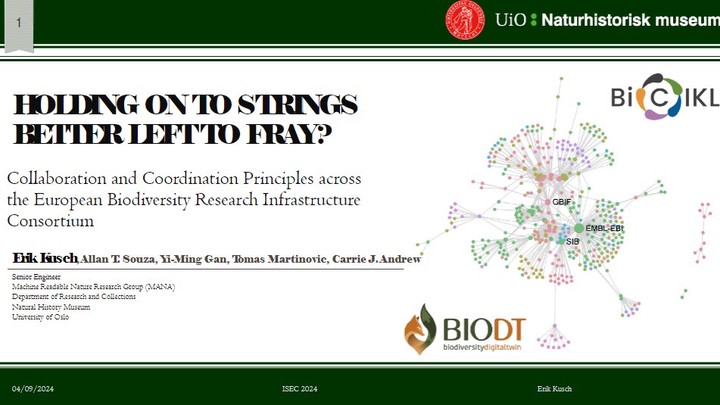Collaboration and Coordination Principles across the European Biodiversity Research Infrastructure Consortium

Abstract
Interoperability has become a critical issue in the research infrastructure domain. The need for data sharing and collaboration across diverse domains and disciplines has brought to light significant challenges in achieving interoperability. As part of the Biodiversity Digital Twin (BioDT) project, we investigate the operational challenges that undermine information and knowledge sharing within and across research infrastructures (RIs). We identify challenges of achieving data and communication/collaboration interoperability and categorise them as of technical and social origin. Technical challenges include data formats, vocabulary standards, and metadata quality, while social challenges encompass educating the scientific community and harmonising communication formats among RIs. Subsequently, we propose strategies through which to overcome these pitfalls. To enhance the interoperability of RIs in the future, we highlight the use of persistent identifiers (PIDs) not only for the datasets, publications and software, but also for research instruments and the RIs themselves. Additionally, we present a low-cost, easy-to-implement communication tool tailor-made for RI communication needs that may serve as an entry-point to homogenisation of RI communication and collaboration procedures. While our work focuses on four distinct RIs (DiSSCo, eLTER, LifeWatch Eric, and GBIF) within Europe, the methdology we present is transferable across RIs and geographic target regions.